Research Education and Engagement
The choices societies make regarding science and technological advancements result in the most effective outcomes when local knowledge is leveraged and cultural values are integrated into the decision-making processes. Multiple sets of expertise must be represented in the process of forming science and technology policies in order to properly address the complex problems of today. To help train reflective individuals that see the big picture, work in interdisciplinary teams, and can contribute to this process, CSPO coordinates an array of education and engagement activities. In addition to undergraduate courses and interdisciplinary graduate programs that integrate natural sciences, engineering, and sustainability, CSPO faculty and students have developed programs that reach into communities to involve broader audiences in science engagement activities, in partnership with museums, government programs, high schools, general circulation magazines, think tanks, and more.
-
Participatory Assessment and Governance of Climate Intervention Technologies
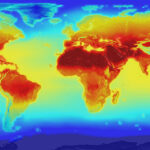
Project Background: Climate intervention technologies (CIT) include several existing, proposed, theoretical, or experimental technologies, including carbon dioxide removal and solar radiation management technologies, that aim to modify Earth’s climate systems to reduce the harms of climate change (IPCC, 2018; The…
-
Partners for Narratives
The futures narratives partners will convene a hackathon with science fiction writers, artists, experts and instructional designers to develop compelling narratives of nuclear waste futures that will inform the following phases of the project. Joey Eschrich Managing Editor, Center…
-
Partners for Evaluation
Evaluation partners will work with the project team to conduct four types of evaluation: (a) Public values evaluation, (b) Participant activities evaluation, (c) Project process evaluation, and (d) Project outcomes evaluation. The public values evaluation will specifically focus on implementation…
-
Establishing a Sociotechnical Approach to Fusion Energy Development

Project Objectives & Background: No energy technology is perfectly equitable, and the deployment of any new technology – energy related or otherwise – entails a multidimensional, differential, and dynamic distribution of benefits and burdens in society. As such, this project…
-
Arizona Consortium for Community Engagement, Innovation, and Learning on Consent-Based Siting (CCEIL-AZ)

Project Objectives: This two-year project seeks to build a participatory engagement framework to potentially inform a consent-based siting process for an interim facility for high-level nuclear waste. It will build a network of partner organization across Arizona, including the Arizona…
-
Carbon Dioxide Removal (CDR) Technology Public Forums and Application to Governance Frameworks
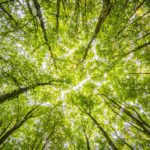
Current climate projections suggest that traditional sustainability efforts alone will not be sufficient for achieving the international community’s ambition of staying below a 2°C increase in global temperature in the coming decades; as such, utilizing drastic, novel approaches may also…
-
Editing Our Genome? Public Forums on Framing Our Biological Futures
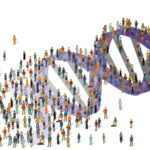
The incredible potential and rapid advancement of gene editing techniques, particularly the invention of the CRISPR/Cas9 system, have raised significant ethical, legal, and social questions that cannot be answered by expert stakeholders alone. Baylor College of Medicine, Arizona State University,…
-
We, the Internet U.S. Community Forums
Dates: Saturday, October 24 & Sunday, October 25 Time: 1pm – 5pm ET / 12pm – 4pm CT / 10am – 2pm PT Location: Online via zoom Background Materials Briefing Material for Participants (short) Briefing Material for Participants (long)…
-
Partner with Us!
Are you interested in becoming a local partner for the U.S. dialogues? Please contact Mahmud Farooque as soon as possible! Recruitment is already under way for our October 24-25 forums. What is the role of the local partner? As a…
-
We the Internet: Citizen and Stakeholder Dialogues
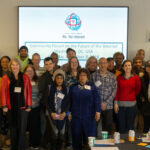
Background: For the 55% of the world’s population connected to it, the Internet has been a source of transformational change. This connection has altered almost every facet of daily life, from the ways we communicate, learn, shop, and interact to…
-
Meet the Fellows
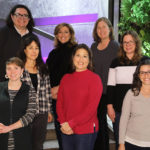
Ann Arbor, MI Jade Marks, University of Michigan Museum of Natural History Jade Marks is the Science Communication Manager for the University of Michigan Museum of Natural History. Through courses, workshops, and programming, Jade helps researchers use their stories to…
-
Public Interest Technology Community Innovation Fellowship
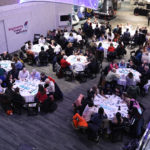
An immersive learning program for engaging communities in science and technology policy, education and research The Expert and Citizen Assessment of Science and Technology (ECAST) network—led by Arizona State University‘s Consortium for Science, Policy and Outcomes (CSPO), the Museum of…
-
Workshop Announcement
Workshop Announcement A Call for Universities, Industry, and Government to: Improve Research Results and Increase Benefits to Society Through Deepening Engagement with External Partners We believe that universities can improve their research and increase their benefits to society through extending…
-
Workshop Agenda
Highly Integrated Basic and Applied Research (HIBAR) Primary Workshop Goals To find shared understanding about HIBAR: What is it? Why do we need more of it? To find possible ways to collaborate on advancing HIBAR. To express these understandings in…
-
Participant Profiles
Henry Artigues Henry Artigues serves as the Director for External Partnerships and Economic Development at Florida International University. In this role, Henry represents FIU research interests in Washington DC in an effort to solidify relationships with federal agencies and industry…
-
Draft Scoring Rubric to Evaluate HIBAR Efforts
Draft A Suggested HIBAR Scoring Rubric A scoring rubric might help assess the extent to which a research project qualifies as HIBAR. A reliable assessment tool could help universities monitor their progress in boosting HIBAR and could also help in…
-
Background Readings
Highly Integrated Basic and Applied Research (HIBAR) Venkatesh Narayanamurti and Toluwalogo Odumosu, Cycles of Invention and Discovery: Rethinking the Endless Frontier (Cambridge, MA: Harvard University Press, 2016). Daniel Sarewitz, “Saving Science,” The New Atlantis: A Journal of Technology & Society…
-
Introduction
A research leaders’ workshop to consider forming the: Highly Integrated Basic and Applied Research (HIBAR) Alliance: Seeking solutions and understanding by uniting the approaches of invention and discovery (Drafted by A. Austin, Michigan State University, C. Crittenden, University of California…
-
Highly Integrated Basic and Applied Research
Consensus Statement of the HIBAR Research Alliance A Call for Universities to Improve Research and Increase Benefits to Society Through Deepening Engagement with External Partners May 16, 2017 The HIBAR Research Alliance is a network of research leaders who believe…
-
Science Center Public Forums: Community Engagement for Environmental Literacy, Improved Resilience, and Decision-Making
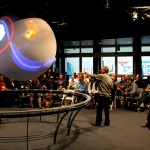
Funded by the National Oceanic and Atmospheric Administration (NOAA) Office of Education (OED) and led by Arizona State University’s Consortium for Science, Policy & Outcomes (CSPO) and the Museum of Science Boston, this three year project will create a next-generation,…
-
World Wide Views on Climate and Energy
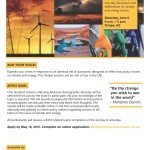
What is it? World Wide Views on Climate and Energy (WWViews on Climate and Energy) is a global citizen consultation, providing unique information about how far citizens around the world are willing to go, in order to deal with climate…
-
A Participatory Technology Assessment of NASA’s Asteroid Initiative
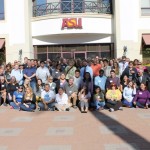
Project Description This Arizona State University-led pilot project of the Expert and Citizen Assessment of Science and Technology (ECAST) network will work collaboratively with NASA to design, test, develop, implement, analyze, and assess two on-site and one on-line citizen forums…
-
Congress on Teaching the Social and Ethical Implications of Research
There is an increasing push to offer scientists and engineers new forms of education in the social and ethical implications of research. Because this trend is relatively new, there are no cohesive curricula or recognized sets of best practices. But…
-
Conference: The Rightful Place of Science?
The conference “The Rightful Place of Science?”, presented by the Consortium for Science, Policy & Outcomes at Arizona State University was unlike traditional conferences that usually rely on a “top down” model of information flow. Amid art, music, literature, media,…
-
Emerge 2013: The Future of Truth
Feb. 28 – March 2, 2013 Arizona State University / Tempe, Arizona We understand the world through stories. Our stories may be rooted in rigorous fact or unbounded imagination but, being incomplete, they are always lies. Many are useful, however,…
-
Emerge 2012: Artists + Scientists Redesign the Future
March 1–3, 2012 Arizona State University What it means to be human is changing. Emerging technologies are transforming our minds, our relationships, everything we own and the very landscapes in which we live. What kinds of humans will we become?…
-
World Wide Views on Global Warming
CSPO Organizers: Nalini Chhetri, CSPO Research Fellow, and lecturer, ASU’s School of Letters and Sciences Netra Chhetri, assistant professor, ASU’s School of Geographical Sciences and CSPO Organized by The Danish Board of Technology and The Danish Cultural Institute, World Wide…
-
To Think, To Write, To Publish
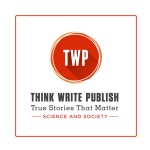
Forging a Working Bond Between Next Generation Science Communicators and the Next Generation of Science and Technology Policy Leaders Project Summary The project and associated workshop, “To Think, To Write, To Publish: Forging a Working Bond Between Next Generation Science…
-
Science, Policy and Citizenship Program
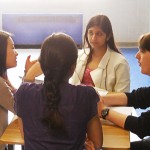
Program Goals: This program provides an important opportunity for high school age students to learn and engage in emerging science and engineering issues from the citizen’s perspective – to consider the social and ethical issues that may accompany transformative technologies…
-
Rethinking our Writing, Rewriting our Thinking: A workshop series
A workshop series designed to help ASU colleagues bring their work to larger audiences February 23 / March 8 / April 13 / May 4, 2010 [download flyer] ABOUT This series of four free workshops targets the distinguished researchers of…
-
Partnership for Education on Climate Change, Engineered Systems, and Society
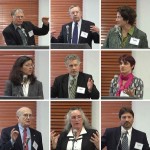
Project Period: September 2010 – August 2013 Principal Investigator: Rachelle Hollander, National Academy of Engineering Co-Principal Investigators: Clark Miller, CSPO Deborah Johnson, University of Virginia Juan Lucena, Colorado School of Mines Paul Fontaine, Museum of Science-Boston Overview This project is…